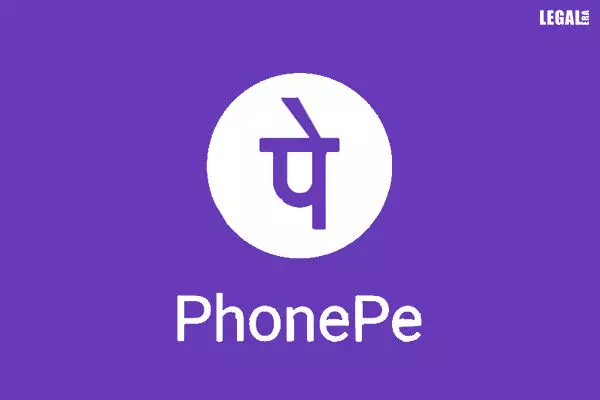- Home
- News
- Articles+
- Aerospace
- Artificial Intelligence
- Agriculture
- Alternate Dispute Resolution
- Arbitration & Mediation
- Banking and Finance
- Bankruptcy
- Book Review
- Bribery & Corruption
- Commercial Litigation
- Competition Law
- Conference Reports
- Consumer Products
- Contract
- Corporate Governance
- Corporate Law
- Covid-19
- Cryptocurrency
- Cybersecurity
- Data Protection
- Defence
- Digital Economy
- E-commerce
- Employment Law
- Energy and Natural Resources
- Entertainment and Sports Law
- Environmental Law
- Environmental, Social, and Governance
- Foreign Direct Investment
- Food and Beverage
- Gaming
- Health Care
- IBC Diaries
- In Focus
- Inclusion & Diversity
- Insurance Law
- Intellectual Property
- International Law
- IP & Tech Era
- Know the Law
- Labour Laws
- Law & Policy and Regulation
- Litigation
- Litigation Funding
- Manufacturing
- Mergers & Acquisitions
- NFTs
- Privacy
- Private Equity
- Project Finance
- Real Estate
- Risk and Compliance
- Student Corner
- Take On Board
- Tax
- Technology Media and Telecom
- Tributes
- Viewpoint
- Zoom In
- Law Firms
- In-House
- Rankings
- E-Magazine
- Legal Era TV
- Events
- Middle East
- Africa
- News
- Articles
- Aerospace
- Artificial Intelligence
- Agriculture
- Alternate Dispute Resolution
- Arbitration & Mediation
- Banking and Finance
- Bankruptcy
- Book Review
- Bribery & Corruption
- Commercial Litigation
- Competition Law
- Conference Reports
- Consumer Products
- Contract
- Corporate Governance
- Corporate Law
- Covid-19
- Cryptocurrency
- Cybersecurity
- Data Protection
- Defence
- Digital Economy
- E-commerce
- Employment Law
- Energy and Natural Resources
- Entertainment and Sports Law
- Environmental Law
- Environmental, Social, and Governance
- Foreign Direct Investment
- Food and Beverage
- Gaming
- Health Care
- IBC Diaries
- In Focus
- Inclusion & Diversity
- Insurance Law
- Intellectual Property
- International Law
- IP & Tech Era
- Know the Law
- Labour Laws
- Law & Policy and Regulation
- Litigation
- Litigation Funding
- Manufacturing
- Mergers & Acquisitions
- NFTs
- Privacy
- Private Equity
- Project Finance
- Real Estate
- Risk and Compliance
- Student Corner
- Take On Board
- Tax
- Technology Media and Telecom
- Tributes
- Viewpoint
- Zoom In
- Law Firms
- In-House
- Rankings
- E-Magazine
- Legal Era TV
- Events
- Middle East
- Africa
Madras High Court Dismisses PhonePe's Trademark Infringement Lawsuit Against BundlePe

Madras High Court Dismisses PhonePe's Trademark Infringement Lawsuit Against BundlePe
The Madras High Court has dismissed a lawsuit filed by PhonePe, a leading digital payments company, seeking to have its mark recognized as a well-known trademark. PhonePe had asked the court to issue a permanent injunction to prevent BundlePe Innovations Pvt Ltd from using the names "BundlePe" and "LatePe," arguing that the use of "Pe" in these names could mislead consumers and cause an unjust association between the two brands.
In its lawsuit, PhonePe argued that the use of "Pe" in competing names would likely exploit the company's established reputation in the digital payments space. However, the court disagreed with these claims, ruling that the term "Pe" is a common element in the digital payments industry and cannot be considered exclusive to PhonePe.
Justice P. Velmurugan, explained that "Pe" is simply a transliteration of the Hindi word "Pay," a term widely used across the financial and digital transaction sectors. The judge pointed out that major companies such as Google Pay, Paytm, and Apple Pay also incorporate "Pe" in their names, making it clear that the term is not unique or distinctive. As such, the court concluded that PhonePe could not claim ownership over a commonly used term in the industry.
PhonePe argued that it had been using the "PhonePe" mark since 2015 and had secured rights to variants like "FonePe" and "PhonePay." The company further claimed that it was responsible for nearly half of all UPI transactions in India, which reinforced its position as a prominent brand in the digital payments sector. BundlePe Innovations, on the other hand, defended its right to use the name, asserting that its business was legally registered and operated within the bounds of the law. The company also emphasized that its offerings, including bill payments and recharges, were different from PhonePe’s core focus on money transfers. BundlePe argued that PhonePe was attempting to monopolize generic terms such as "Phone," "Pay," and "Pe," which are not original to the company.
In its judgment, the court noted that "Pe" is a common element used by various payment services and was not distinctive enough to warrant exclusive ownership by PhonePe. Then court also stated that the addition of the prefixes "Bundle" and "Late" in the defendant's brand names created a sufficient distinction between the two businesses, making it unlikely that consumers would be confused or misled.
Without evidence of consumer confusion or deception, the court rejected PhonePe's request for a permanent injunction or damages. The judgment highlighted that BundlePe’s use of "Pe" was in good faith and did not infringe on PhonePe’s trademark rights.
This ruling sets an important precedent in the Indian fintech industry, reinforcing the idea that commonly used terms cannot be monopolized unless they demonstrate clear distinctiveness.
The decision could have far-reaching implications for future trademark disputes in the rapidly growing digital payments sector.



